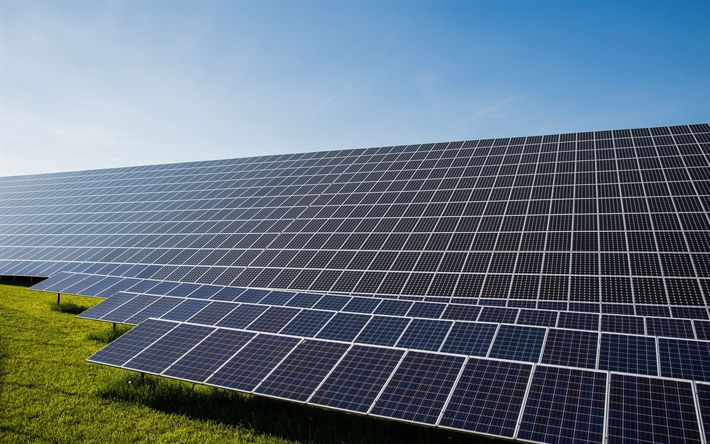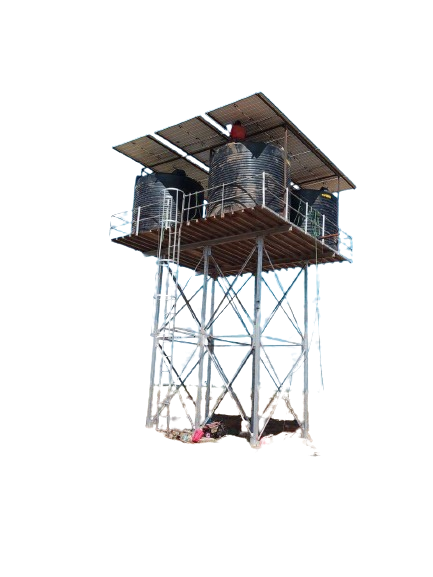Blog
Introduction
Water is a fundamental necessity for life, and accessing clean, reliable water sources is crucial for communities, industries, and agriculture.....
Borehole drilling is a common method used to obtain groundwater from beneath the earth's surface. This process involves drilling deep into the ground to access aquifers, which are layers of rock or sediment that hold water. In this blog, we'll delve into the advantages, disadvantages, and considerations of borehole drilling for water.
Advantages of Borehole Drilling
Borehole drilling offers numerous advantages, making it a preferred method in many applications:
✔ Reliable Water Supply: Boreholes tap into underground water sources, providing a consistent and reliable water supply even during droughts when surface water may be scarce.
✔ Quality Control: Groundwater is often cleaner and less prone to contamination compared to surface water sources, reducing the need for extensive treatment.
✔ Cost-Effectiveness: While the initial investment in drilling equipment and installation may be significant, the long-term costs of maintaining a borehole are generally lower than those associated with surface water systems.
✔ Independence: Boreholes provide independence from centralized water systems, making them ideal for remote or rural areas where infrastructure may be lacking.
✔ Versatility: Boreholes can be used for various purposes, including domestic water supply, agriculture, industrial processes, and groundwater recharge.
Disadvantages of Borehole Drilling
➤ Initial Costs: The upfront expenses for drilling equipment, permits, and professional services can be substantial, making borehole drilling prohibitive for some individuals or communities.
➤ Technical Expertise: Proper drilling and installation require specialized knowledge and equipment, which may not be readily available in all areas.
➤ Environmental Impact: Improper drilling practices can lead to environmental damage, such as groundwater contamination or depletion, and habitat disruption.
➤ Maintenance: Boreholes require regular maintenance, including cleaning, testing, and, if necessary, rehabilitation to ensure continued performance and water quality.
➤ Potential Risks: There is a risk of encountering geological challenges during drilling, such as unexpected rock formations or low-yielding aquifers, which can impact the success and cost-effectiveness of the project.
Considerations for Borehole Drilling
★Site Selection: Careful site selection is crucial to ensure optimal water yield and quality. Factors such as geology, hydrogeology, and proximity to potential sources of contamination must be considered.
✽ Regulatory Compliance: Compliance with local regulations, permits, and environmental assessments is essential to avoid legal issues and ensure sustainable water use.
✽ Professional Assistance: Engaging experienced hydrogeologists, drilling contractors, and other professionals can help mitigate risks and ensure the success of the project.
✽ Community Involvement: Involving the local community in the planning and management of borehole projects fosters ownership and sustainability.
Conclusion
Borehole drilling offers a viable solution for accessing groundwater and providing reliable water supplies in various contexts. While it presents several advantages, including reliability, quality control, and independence, it also comes with challenges such as high initial costs, technical requirements, and environmental considerations. By carefully evaluating the advantages, disadvantages, and key considerations, communities and individuals can make informed decisions about borehole drilling to meet their water needs effectively.
Introduction
Solar panels are becoming an increasingly popular choice for homeowners and businesses looking to reduce their carbon footprint and energy costs.
Here’s why installing solar panels could be one of the best
....
decisions you make for your home or business:
The Benefits of Solar Panel Installation
✔ Eco-Friendly Energy: Solar panels generate electricity without emitting harmful pollutants, reducing your carbon footprint and contributing to a cleaner planet.
✔ Cost Savings: By generating your own electricity, you can significantly reduce or even eliminate your utility bills. Many regions also offer incentives, rebates, and tax credits that make solar installation more affordable.
✔ Energy Independence: Solar panels provide a degree of energy independence, insulating you from fluctuating energy prices and potential outages in the grid.
✔ Low Maintenance: Once installed, solar panels require minimal maintenance. With no moving parts, they are built to last and perform efficiently for decades.
✔ Increased Property Value: Homes and businesses with solar installations often see an increase in property value, appealing to eco-conscious buyers and tenants.
Challenges and Considerations
➤ Upfront Investment: While solar panels offer long-term savings, the initial cost of purchase and installation can be high. However, financing options and incentives can help mitigate this.
➤ Weather Dependency: Solar panel efficiency can be affected by weather conditions and geographic location. Areas with less sunlight may require more panels to achieve desired energy output.
➤ Space Requirements: Installing solar panels requires adequate roof space or land. It’s important to assess your property’s suitability for solar panel placement.
➤ Installation Process: Professional installation is crucial for optimal performance and safety. Ensure you work with experienced contractors who are familiar with local regulations and standards.
Making the Switch: Key Considerations
★ Site Assessment: Conduct a thorough assessment of your property to determine the best location for solar panels, considering factors like roof orientation, shading, and space availability.
✽ Incentives and Financing: Explore available incentives, rebates, and financing options to make your solar investment more affordable.
✽ Professional Consultation: Engage with reputable solar providers to receive a detailed analysis of your energy needs and a customized installation plan.
✽ Long-Term Benefits: Consider the long-term benefits of solar energy, including reduced energy bills, environmental impact, and potential property value increase.
Conclusion
Solar panel installation represents a forward-thinking approach to energy consumption, offering numerous benefits from cost savings to environmental impact. While there are initial costs and practical considerations, the long-term advantages make solar energy a compelling choice for sustainable living. By understanding the benefits and preparing for the challenges, you can make an informed decision to harness the power of the sun and contribute to a greener future.
Introduction
Water towers play a crucial role in maintaining a reliable water supply for residential, commercial, and industrial areas. By providing elevated storage, water towers ensure consistent water pressure and availability.
....
To ensure their effectiveness, mastering the intricacies of plumbing and storage is essential. Here’s a guide to optimizing water tower systems for maximum efficiency:
✔ Enhanced Water Delivery: Properly designed plumbing systems ensure that water flows smoothly from the tower to the distribution network, maintaining optimal pressure and minimizing energy use.
✔ Robust Storage Solutions: Effective storage strategies preserve water quality and manage capacity, preventing overflows and contamination while ensuring a steady supply during peak periods.
✔ Durability and Safety: Investing in high-grade materials and construction practices safeguards the structural integrity of the water tower. Regular inspections and proactive maintenance prevent costly repairs and ensure safety.
✔ Operational Cost Savings: Streamlined plumbing systems and efficient water storage reduce operational expenses by lowering energy consumption and minimizing water loss.
✔ Regulatory Adherence: Complying with water quality standards and safety regulations is paramount. A well-maintained system not only meets legal requirements but also upholds public trust and health.
Overcoming Challenges in Water Tower Management
➤ High Initial Costs: The capital expenditure for constructing and installing a water tower, coupled with its plumbing infrastructure, can be significant. Strategic financial planning and exploring funding options can mitigate this challenge.
➤ Maintenance Complexity: Regular upkeep is necessary to address potential issues such as leaks, corrosion, and sediment buildup. A detailed maintenance plan and skilled personnel are crucial for effective management.
➤ Water Quality Preservation: Ensuring the stored water remains clean requires diligent monitoring and treatment. Implementing advanced filtration systems and periodic water quality assessments helps maintain high standards.
➤ Integration with Modern Technology: Embracing smart technologies for monitoring and controlling water levels, detecting leaks, and analyzing system performance can enhance efficiency and preempt problems.
Strategic Insights for Effective Water Tower Management
★ Tailored System Design: Work with experienced engineers to design a water tower system that meets your specific needs, considering factors like capacity, location, and potential growth.
✽ Investment in Quality: Choose durable materials and advanced components for both the tower and plumbing system to ensure long-term reliability and reduced maintenance costs.
✽ Proactive Maintenance: Establish a routine maintenance schedule and engage with professional services to address issues before they escalate, ensuring the system’s continuous performance.
✽ Community Communication: Educate stakeholders and the community about the water tower’s role, benefits, and maintenance efforts. Transparency fosters trust and support for the infrastructure.
Conclusion
Optimizing water tower plumbing and storage systems is essential for efficient water management and long-term sustainability. Despite the challenges of initial costs and maintenance, the benefits of enhanced water delivery, cost savings, and regulatory compliance make it a worthwhile investment. By focusing on strategic design, quality components, and advanced technology, you can ensure that your water tower operates at peak performance and continues to meet the needs of your community.


